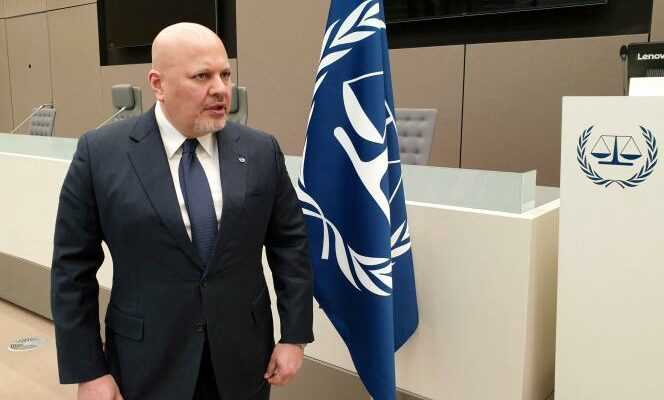The prosecutor of the International Criminal Court (ICC) filed a request with the judges’ office on Thursday, March 10, seeking the issuance of arrest warrants against three officials from South Ossetia, a Caucasian territory which has seceded from Georgia. The suspects are targeted for war crimes committed during the flash conflict of summer 2008, opposing Russia and Georgia in this separatist enclave.
In a statement attached to his request, Karim Khan appealed to the parties to the conflict in Ukraine. “Those who take part in armed conflict have a heavy responsibility to ensure that their conduct complies with international law,” he asserted. The Brit also said he had “saw similar behavior” to those targeted in Georgia, in the current war in Ukraine.
The first of the suspects, General Mikhail Mindzaev, is Russian. He was a policeman before joining South Ossetia in 2005 and taking over as head of the separatist administration’s interior affairs ministry. The second, Gamlet Guchmazov, 45, sinister in the photo attached to the prosecutor’s request, is also Russian, but he could also hold Georgian nationality. During the conflict, he was in charge of the prison of the Ministry of Internal Affairs, under the authority of General Mindzaev. The last, David Sanakoev, would be of Georgian nationality and was the representative, for human rights, of the president of the separatist province. Prosecutor Karim Khan suspects the three men of acts of torture, hostage taking, inhuman treatment, outrage to personal dignity and illegal transfer of population, committed between 1er July and October 10, 2008, the date of the withdrawal of Russian forces behind the administrative lines of South Ossetia.
“An atmosphere of oppressive fear”
The crimes denounced in the request for an arrest warrant relate to the detention of numerous prisoners in the“Isolator”, the prison of the separatists’ Ministry of Internal Affairs, in Tskhinvali. At least 171 prisoners, including 47 women, one child, and many people “over 70” were imprisoned there, before being forcibly transferred to the undisputed territories of Georgia.
According to the request, “an atmosphere of oppressive fear” reigned in the prison, where everything was lacking: water, food, medicine, beds. Some detainees were reportedly beaten, at least a dozen tortured. About thirty would still have been forced to transport and bury the corpses of soldiers. Threatened with death, insulted, some “detainees were forced to wipe their feet on the Georgian flag”.
You have 32.51% of this article left to read. The following is for subscribers only.
